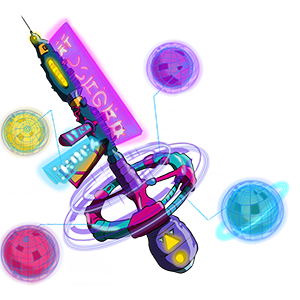In the previous article, we discussed the importance of cultural awareness, language diversity, and creating a unique set of communication rules to shape your team’s culture. On our team, one of the most important principles, based on our Diversity, Equity and Inclusion framework, is ensuring representation of and respect for LGBTQI+ groups and other communities.
You may already know about the benefits of having a diverse team and the impact that a good corporate DEI framework can have on someone’s life. But also remember that we work with a global clientele and need a workforce that mirrors and celebrates different communities and backgrounds.
So, what can you do to welcome diversity? Here are our tips!

- Assess yourself: Good intentions are not enough. True change requires a comprehensive approach involving policies, training, and a company culture that celebrates differences and ensures equal opportunities for all employees. Take a moment to analyze where your organization is standing now. Do you have specific company policies regarding DEI? Have you shared them across your organization and with different stakeholders? Do you offer ongoing training? Do you promote inclusion groups within your organization? How varied are the demographics in your company?
- You can always do better: It’s okay if you notice that there are areas for improvement because that’s the first step. By acknowledging that we can do better, we can always do better. So, educate yourself and your team. It’s not just about understanding the terminology and knowing the key dates, but also about recognizing biases, understanding privilege, and learning how to be an effective ally. Hold yourself accountable and lead by example.

- Do you already have it figured out? Then get ready for change! Diversity and inclusion practices should be flexible and open to change. New challenges, shifts in societal norms, and updated best practices will always present themselves. In this fast-paced world, it’s crucial for teams to stay adaptable and responsive, ready to address the changing needs of their employees. This means keeping up to date on the issues, whether it’s progress in LGBTQI+ rights, new discussions about neurodiversity, or how global events affect marginalized groups. Therefore, your organization must be willing to regularly review policies, practices, and cultural norms, and be prepared to make changes when needed to keep them effective and relevant.
| How did we do it? |
| As the team grew, we realized that we needed to implement diversity and inclusion best practices. While the organization had always been friendly to the various diverse communities, there was no written policy stating these values. So, under the leadership of the Human Resources team, and with the help of a diverse group of Terra employees and a specialized consulting firm, we created a diversity and inclusion policy for the entire organization, honoring: – Gender diversity – Sexual diversity / LGBTQI+ – Generational diversity – Functional diversity – Neurodiversity / Neurodivergence – Socioeconomic status – Religious diversity – Ethnic or national diversity – Interculturality The team built and shared a set of documents and provided training with the objective of building work environments that were free of stereotypes, prejudice, discrimination and violence, not only within our organization but also throughout our value chain, in partnership with our vendors and customers. The policy established the institutional framework, which included the promotion of safe workspaces, the priority of taking care of our human capital, guidance on navigating relationships with vendors and our value chain, leadership models, reporting mechanisms, resource groups, affirmative policies, an LGBT+ legal framework, and basic common terminology. |

The Takeaway
This journey requires ongoing commitment and effort, but it can unlock the full potential of the team and benefit both individuals and the organization. Remember, continuous learning and adaptation are key, and leadership plays a crucial role in fostering and maintaining this inclusive culture. We strongly recommend embracing these practices to cultivate an environment that promotes creativity, collaboration, and mutual respect, leading to a workplace where everyone can thrive.
About the author:

Angie Tapia is a professional in translation, localization, project management and language services. She holds a Bachelor of Arts in Translation and Interpreting and a Master’s in Administration and Project Management. Her career includes a pivotal role as the Head of Language Services at the Lima 2019 Pan American and Parapan American Games, where she led a team of 50 language services professionals and over 300 volunteers, providing over five million translated words and a thousand hours of interpreting. Angie’s work extends to academia, where she has served as a university professor since 2015. Currently, she channels her passion for innovation, technology and localization into her position as a Customer Success Manager at Terra Localizations, where she tailors solutions and streamlines processes for the videogame industry.
